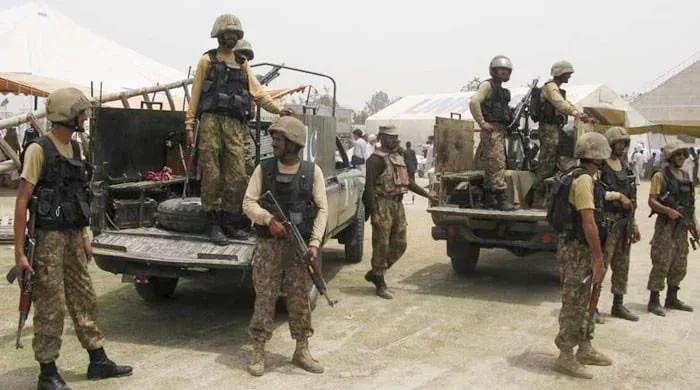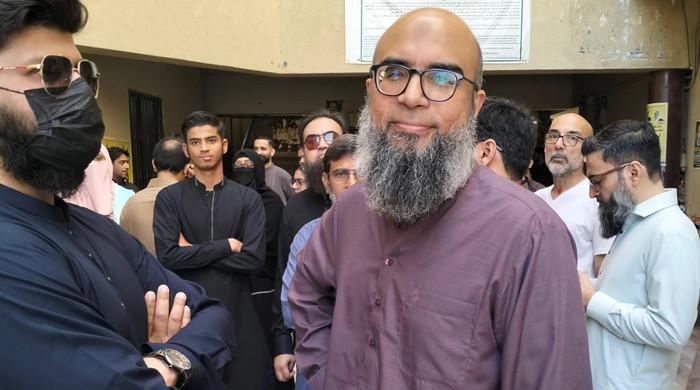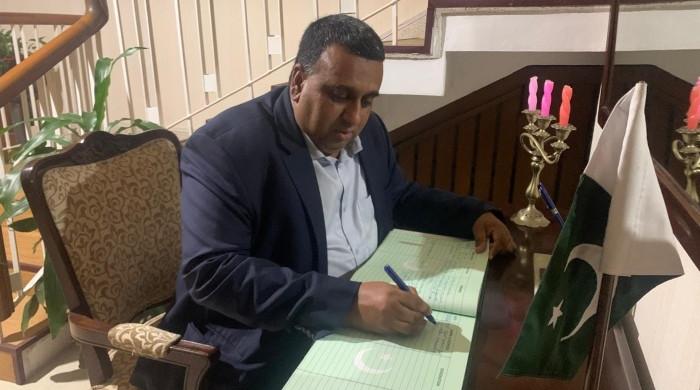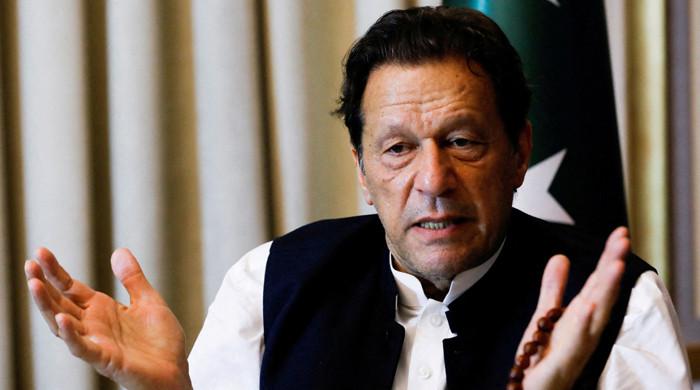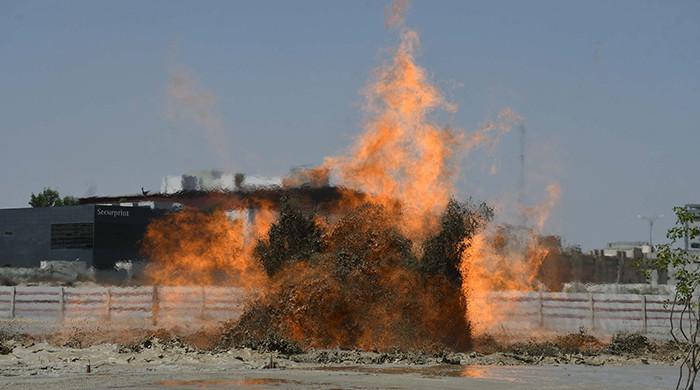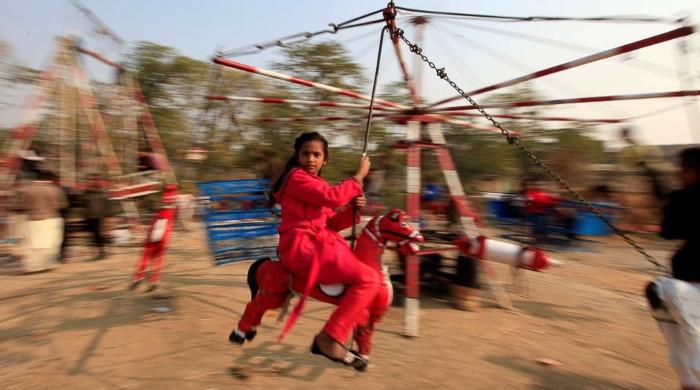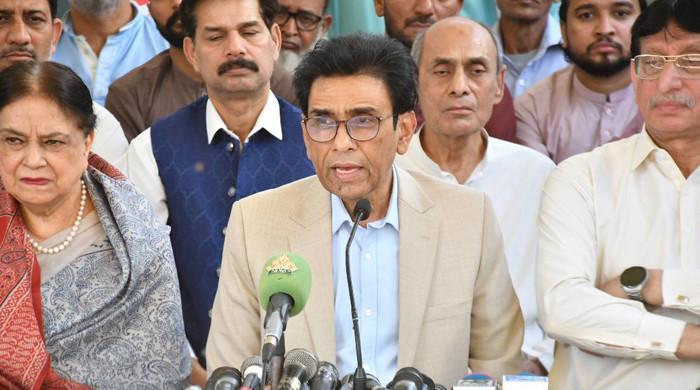Afghan Taliban 'warn TTP' against attacks in Pakistan
Taliban govt also concerned about repatriation of Afghan refugees in haste by Pakistani government
March 02, 2024
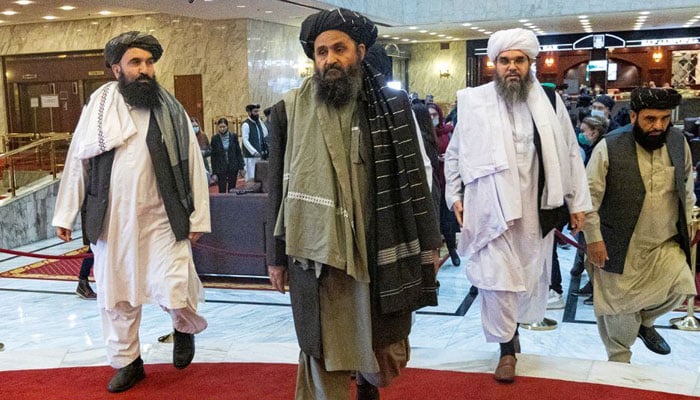
- JUI-S delegation, led by Maulana Hamid-ul-Haq visits Kabul.
- IRCRA head says Taliban govt concerned about repatriation.
- Haqqani network believes dialogue with TTP could improve relations.
ISLAMABAD: The Taliban government has strictly warned the Tehreek-e-Taliban Pakistan (TTP) leadership against using Afghan soil for attacks inside Pakistan and noted that such acts have weakened the relations between the two peoples, said a member of the delegation that recently visited Kabul.
A delegation led by Jamiat Ulema-e-Islam (Sami) head, Maulana Hamid-ul-Haq, went to Kabul. Hamid is the son of the late Maulana Sami-ul-Haq from whose madrassa, Dar-ul-Uloom Haqqania, several Taliban leaders had graduated. The visit was coordinated by Asrar Madani, the head of the International Research Council for Religious Affairs, an organisation that studies the Islamic Movement. This was the second high-profile visit after Maulana Fazlur Rehman who went there in January.
Taliban leaders told the visiting delegates that some four weeks ago, a meeting was called in which TTP leaders like Mufti Noor Wali Mehsud, Hafiz Gul Bahadur and others were also in attendance. Mulla Muhammad Hassan, the prime minister and some of his ministers represented the Afghan government. In the meeting, the TTP leadership was told in unequivocal terms that the attacks inside Pakistan have weakened their relations with the people and the government of Pakistan.
Things have improved since that meeting, Madani said, quoting the Taliban government officials. However, he added that Taliban and, in particular, Haqqani network, believes that resumption of dialogue with TTP could improve the relations. Pakistani officials seem averse to this idea as the TTP in the past secured concessions in the form of release of their prisoners in Pakistani jails, who returned to their native areas but didn’t remain peaceful.
Madani said the Taliban government was concerned about the repatriation by the Pakistani government of Afghan refugees in haste. Those returning after 20-40 years are strangers even in their native areas. The entire landscape has changed in the case of many refugees and they are struggling to settle down. Madani explained the Taliban government said that Pakistan being the host for decades could have waited for more time or at least could make this decision after taking the Afghan government in confidence.
Many in the Taliban leadership have also been refugees in Pakistan for decades. Mulla Haibatullah, currently the supreme leader, has spent almost 15 years in a madrassa in Kuchlak (Quetta) where he taught as Sheikh-ul-Hadith. Maulana Abdul Hakeem Haqqani, the current chief justice of Afghanistan, had been teaching in a madrassa in Pushtunabad (Quetta). Amir Khan Muttaqi, the foreign minister, lived in Quetta. Khalil-ul-Rehman Haqqani, minister for refugees, lived in Peshawar.
Pakistan says the repatriation policy was mainly aimed at fighting terrorism. The authorities have explained that Afghan nationals were found to be involved in attacks against the government and the army, including 14 of this year’s 24 suicide bombings.
Interim Prime Minister Anwaar-ul-Haq Kakar said on November 2023, “A significant portion of those involved in criminal and terrorist activities are among these illegal immigrants.”
Originally published in The News




